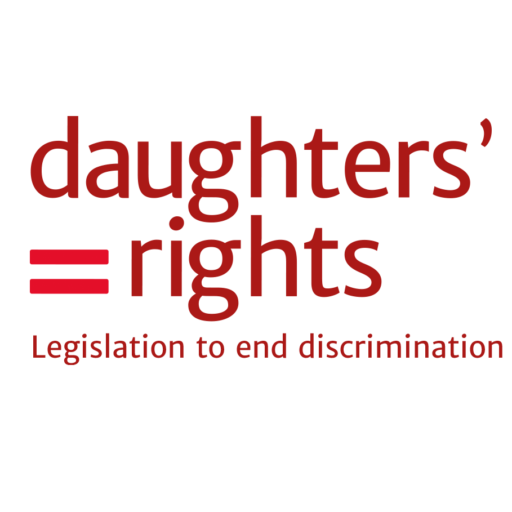In recent years women’s equality has rarely been far from the news. The 2010 Equality Act created an all-encompassing set of laws to ensure that everyone in the United Kingdom was treated equally. However, an anomaly remains within Parliament itself, that daughters of peers do not have the same inheritance rights as their brothers, which excludes them from being able to stand in the House of Lords. Parliament believes in equality and we look forward to working together to combat this discrimination within its own walls.
We are no longer the most enlightened country in Europe. A decade ago Spain abolished male primogeniture, establishing a right of succession for the oldest child regardless of gender, and we are now lagging behind other parts of Europe.
There should be no area of life that says girls are second best. Not allowing women to stand for election to the Upper House is sending the message that, despite the many successes for women’s rights over the last 100 years, it is still OK to for parts of society to treat their daughters differently.
“Any great change must expect opposition, because it shakes the very foundation of privilege”
Lucretia Mott
Our traditional institutions need to adapt to reflect the modern world. ‘Old Boys’ Clubs’ have no place in the 21st Century. There has been reform in every part of society: from royal succession and women bishops to board rooms and golf clubs. Parliament strongly believes in equality and there is no excuse for the lack of reform in the House of Lords.
Succession was changed for the Royal family in 2013 allowing daughters equal status to their brothers. It was a simple piece of legislation immediately overturning centuries of male gender bias, it really is that easy to be be consistent and do the same for all daughters.
“There never will be complete equality until women themselves help to make laws and elect lawmakers”
Susan B Anthony
Gender balance and equal opportunities should be encouraged in all decision-making bodies. There is one quick-fix for ensuring balance in our Parliament, and all it takes is for the word “male” to be removed from the UK’s primogeniture law. This will allow a broader pool of talent to enhance the quality of candidates who stand for election. Prospective female candidates who want to be able to stand for election to the House of Lords have clear issues they would like to advocate on behalf of from mental health to education and would bring new knowledge and skills to the claret benches.
“Suffrage didn’t mean equal opportunity”
Annalee Newitz
